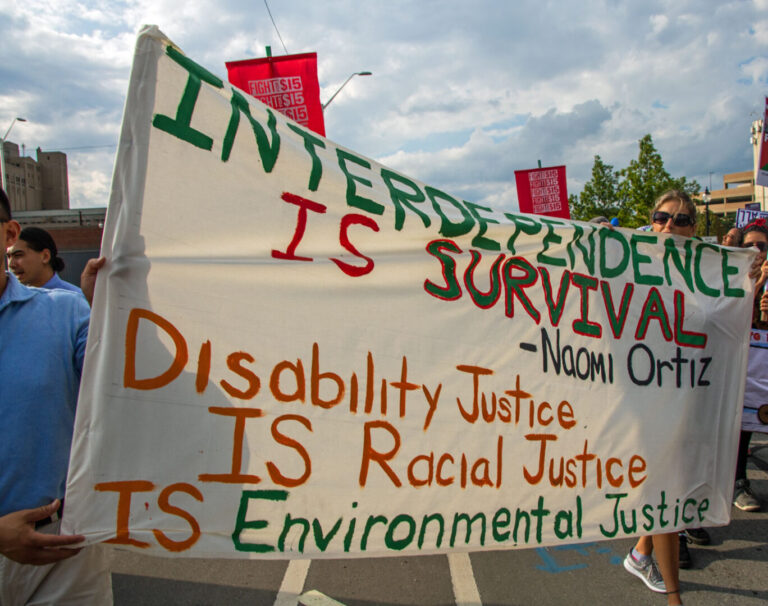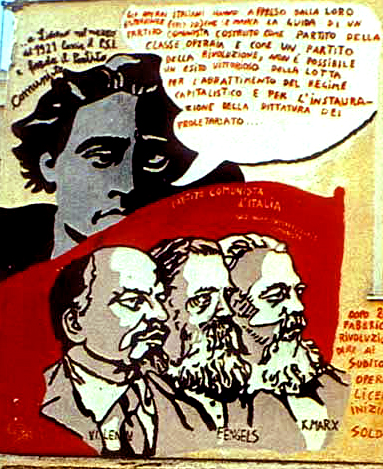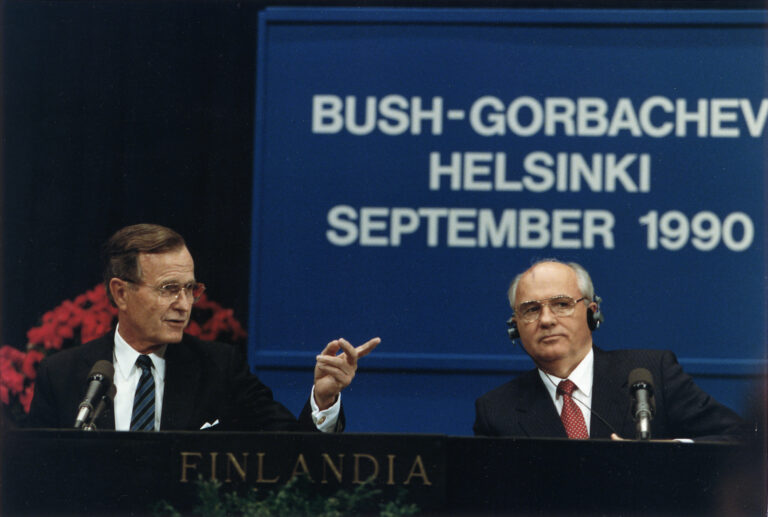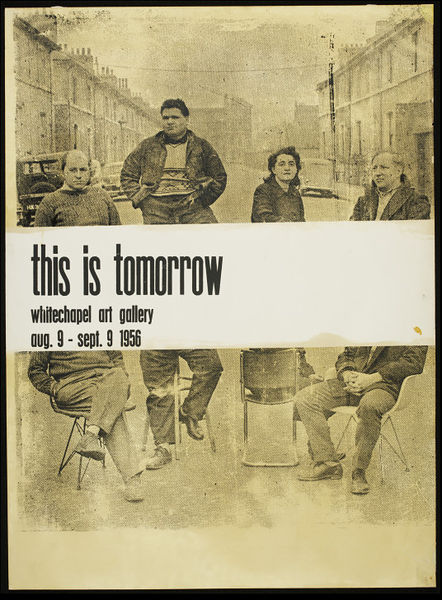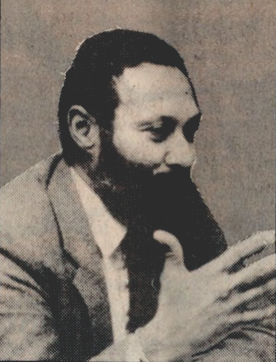The importance of Octavia Butler’s 1993 novel Parable of the Sower continues to crystalize, as Butler’s prescient imagining of urban California torn apart by neoliberal divestment comes to fruition. Following in the space opened up by Black feminist scholarship on Butler, the present essay examines her relevance beyond literary and cultural studies. I argue that Parable is a Black feminist crip theorization of political economy that diagnoses the disabling conditions of precarity under neoliberalism and also prescribes collectivity for crip and mad survival. Neoliberalism describes a global stage of advanced capitalism wherein governments are both incentivized and disciplined into enforcing economic policies that include privatization, deregulation, and market liberalization. As Jodi Melamed defines it, neoliberalism requires a certain kind of political governance, that puts the interests of business over the well-being of people (2011). Neoliberal governance engenders what I call “disabling contradictions,” yet the blame for conditions of precarity is deflected onto bodyminds themselves. In Parable of the Sower, Butler theorizes these disabling contradictions of neoliberal governance under advanced capitalism, drawing into focus the political economic systems that cause suffering. Parable also depicts strategies for crip and mad survival that are made possible through the conscious creation of community and networks of solidarity that counter the neoliberal state’s devaluation of bodyminds. Gathering to read and discuss the novel, rather than a distraction from the crises, furthers the emergence of crip and mad collectivities. As such, it is an urgent and timely practice for building futures for crip and mad people.
Special Sections
Special sections published within or across issues.
1986—The Marxist Disciplining of the Cultural Studies Project
Since its infancy, the pluralistic tendencies of the cultural studies project denied methodological and procedural consistency and resisted any disciplining of cultural studies as an attempt at authoritarian policing. Over the course of the 1980s, cultural studies continued to spread beyond the United Kingdom to Australia and the United States, initially, and the rest of the world soon thereafter. Movements towards the bridging of the longstanding divisions between fact and interpretation—between the social sciences and the humanities—under the sign of a principled approach to cultural democracy saw the Althusserian Marxism characteristic of earlier cultural studies scholarship expanded by way of a critical re/engagement of the works of Gramsci. This period of ideological critique allowed for a bold intellectual, political commitment to the re/conceptualization of culture as a site of class struggle, hegemonic formation, and structural signification. Particularly, the year 1986 saw major strides in this direction with the publication of monumental manuscripts by Stuart Hall, Ernesto Laclau, and Chantal Mouffe.
1990—Alliances from the Rubble
At the dawn of the 1990s, the world was undergoing dramatic transformation—and cultural studies was no exception to this force. By looking at the Illinois conference, the Oklahoma conference, and the special issue of Cultural Studies edited by Rosa Linda Fregoso and Angie Chabram, we evaluate how cultural studies reacted to the sweeping tide of reformation and re-commitment of the 1990s. Ultimately, these events prove that, in 1990, cultural studies made the most of the opportunity to reflect, listen to its critics, and change for the better, and each event can serve as a valuable touchstone as we continue to construct and deconstruct our discipline.
1956—The British New Left and the “Big Bang” Theory of Cultural Studies
In intellectual histories of cultural studies, the year 1956 usually figures as a “big bang” moment. Centered on the geopolitical flashpoints of the Hungarian Revolution and the Suez Crisis, it was the year that catalyzed the British new left, and thus, the story goes, provided a new front of political critique that would serve as the jumping-off point for the nascent formation of cultural studies in Britain. This article presents a brief overview of this conventional pre-history of cultural studies in Britain. It then departs from this familiar story to outline several other notable “big bang” moments happening elsewhere in 1956 with resonance across literature, global labor history, the visual arts, and the women’s movement. These other moments each arguably have considerable bearing on the articulation of cultural studies in Britain, and their examples provide a more globally diverse and textured frame for re-situating the emergence of cultural studies at mid-century beyond the narrow focus on new left politics.
1968—A Turning Point in Cultural Studies
This essay traces how social movements throughout the globe in 1968 heavily influenced the development, operations, and identity of cultural studies. Thus, 1968 remains a critical turning point for cultural studies and its goals. To demonstrate this, global struggles contextualize the micro expressions of unrest at The University of Birmingham’s Centre for Contemporary Cultural Studies (CCCS). Secondly, the essay examines how the discipline negotiated studies of marginalized and subaltern cultures within this social context. And finally, an analysis of key texts of 1968 demonstrates how the sociopolitical moment produced work that is emblematic of cultural studies’ pursuits. Ultimately, the essay questions how our contemporary moment might necessitate new pursuits in scholarly praxis, like the moment of 1968 called forth new directions in cultural studies.
1988–The Crisis in Marxist Cultural Theory
1988 signaled a major year for cultural studies with the publication of several significant texts: The collection of essays Marxism and the Interpretation of Culture, edited by Cary Nelson and Lawrence Grossberg, the essay “Can the Subaltern Speak?” by Gayatri Spivak, and The Hard Road to Renewal, Stuart Hall’s book on Thatcherism. Despite these texts’ divergent purposes, themes, and theories, they can be productively read together for their unique contributions to Marxist cultural theory. In the decades preceding their publication, a resurgence in scholarship devoted to Marxism had emerged, as scholars grappled with both its internal issues as well as its increasingly apparent insufficiency to explain current social formations. As Grossberg and Nelson explain in the introduction to Marxism and the Interpretation of Culture, Marxism was “paradoxically at once undergoing a renaissance of activity and a crisis of definition.” In this essay, we elucidate how each text contributed to cultural studies and particularly highlight how each intervened on this redefinition of Marxism.
Introduction: Years in Cultural Studies
This special section is another iteration of cultural studies telling its own story. In our particular iteration, we offer here essays focused on specific years in the history of cultural studies. Our aim is to provide a pedagogical resource, a place for documentation and excavation, and a forum for more storytelling.
1983—Stuart Hall Visits Australia and North America
Throughout 1983 Cultural Studies continued to spread outside the United Kingdom, spurred by Stuart Hall’s tour of Australia and parts of the United States where he presented lectures connecting current ideas of what it means to study culture in often disparate and intense political climates across the globe. Myriad publications published in 1983 provide insight into how Cultural Studies circulated among scholars in varying disciplines while still in its infancy. This article situates Cultural Studies primarily within a North American context focusing on the pivotal event of the year: the teaching institute held prior to the 1983 conference at the University of Illinois where Hall delivered what would be eight influential lectures in the field of Cultural Studies. Further, I provide insight into an understudied conference held in Australia where Hall’s impact led to the birth of an Australian Cultural Studies journal. Finally, I provide an overview of some of the pivotal publications of the year, connecting ideas of hegemony, power and dominance, reflexivity and Marxism within a western context.
Introduction: Ecologies – Trash, Toxicity, Transmission
Ecologies is a new thread for Lateral and an experiment in practice-based, multi-modal and multi-venue presentation of work in cultural studies. As the Design Editor for Lateral since its inception, I have worked with many contributors and thread editors to produce conversations in web-based publishing that emerge from the membership and annual conference of the Cultural Studies Association, and while these works (all of which can be found right here on Lateral) trace back to our annual gathering, these publications essentially function outside of the conference itself.
Circuits to the Past
This series of photographs tracks digital signals across nine nodes of our fiber-optic undersea cable network – a system responsible for carrying 99% of all transoceanic internet traffic. The images document cable landings in the United States, Australia, New Zealand, and Tahiti, sites where submarine systems come aground and become entangled in the existing movements of both humans and nonhumans. Rather than locating us in an urban landscape, “Signal Tracks” hones in on the cable system’s rural and aquatic environments, extending from breaking waves over Sydney’s beaches, to mountains where brush fires scour O‘ahu’s west shore, to the habitats of endangered mountain beavers in northern California. Although on the surface these images appear absent of industrial infrastructure, the accompanying textual annotations highlight how such “natural” ecologies have been folded into contemporary digital systems.
E-Waste
My artwork investigates the materiality of digital culture, and the ways that our contemporary lavish lives are so dependent on the overlooked labor of lowbrow machines. E-Waste is a new sculptural investigation that incorporates a broad spectrum of USB-powered devices. The objects are partially encrusted with both “natural” and “man-made” environmental materials, yet these half-fossilized mutants continue to function, providing sources of light, sound, and movement.
Money as Medium, Speculation and Scrypt
Although they intervened on a culture of financialization in two very different ways, both Speculation and scrypt explore the intersection of money with the history of media, imperialism, colonialism, and computation. If capitalism is a kind of computer, a difference engine propagating vectors of exchange, these projects attempted to reprogram its operations. Apart from exploring the homology between money, language, computation, and philosophies of abstraction, Speculation and scrypt engage in collaborative practices that interrupt forms of classroom pedagogy based around the concept of the neoliberal individual (and neoliberal university). When money is pursued not for profit, but play, and when money is transformed from a medium of exchange to a medium for artistic practice, these two moneygames make invisible hands visible.
L.U.N.G.S
LUNGS is an activist research project investigating pollution as a cause of diseases of poverty, first by interrogating how pollution information is collected and analyzed, and then by creating low-cost, remote-deployable pollution sensor kits to enable more informed decision-making in relationship to local, real-time pollution and health.
Topographies of Interference
‘Topographies of Interference’ is meant to provoke viewers into thinking about information services’ material presence in the world, and to relocate the vision of large tech companies as primarily urban centers to one that highlights their presence in more rural communities, which often receives less attention.
Long Time No Ocean
Words on flagging banners are cut out, with letters left hanging; phrases like “Long Time No Ocean” become difficult to read. Language here functions in dual ways as both a communicative tool and an evocative form. In the absence, concealment, or constant rebuilding, a space opens up for a shift of meaning and it is this moment of shift that I am particularly interested in.
